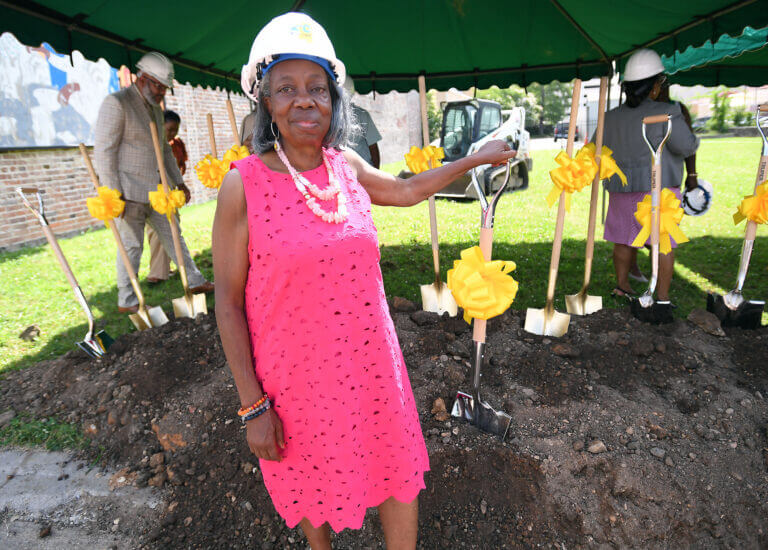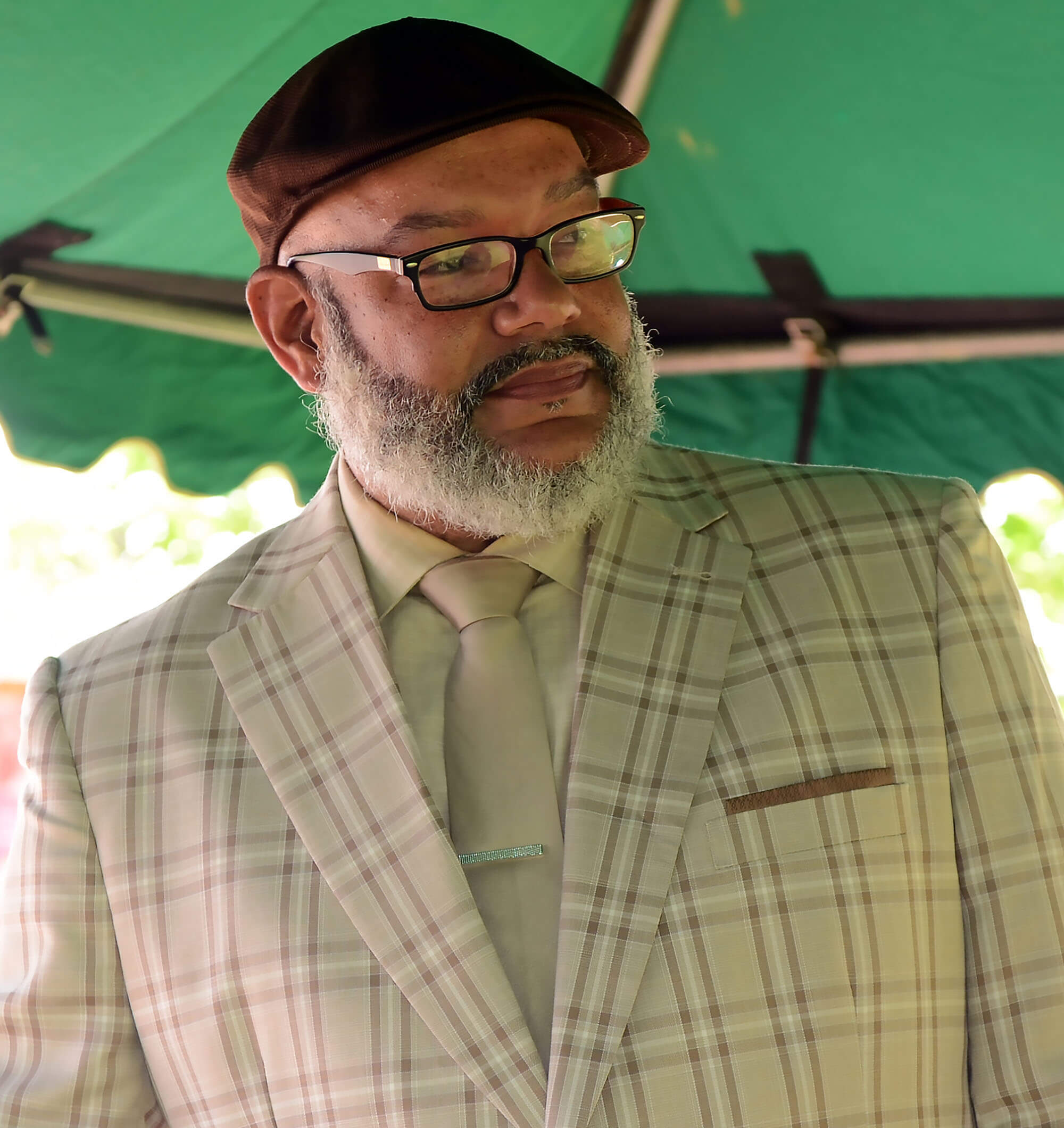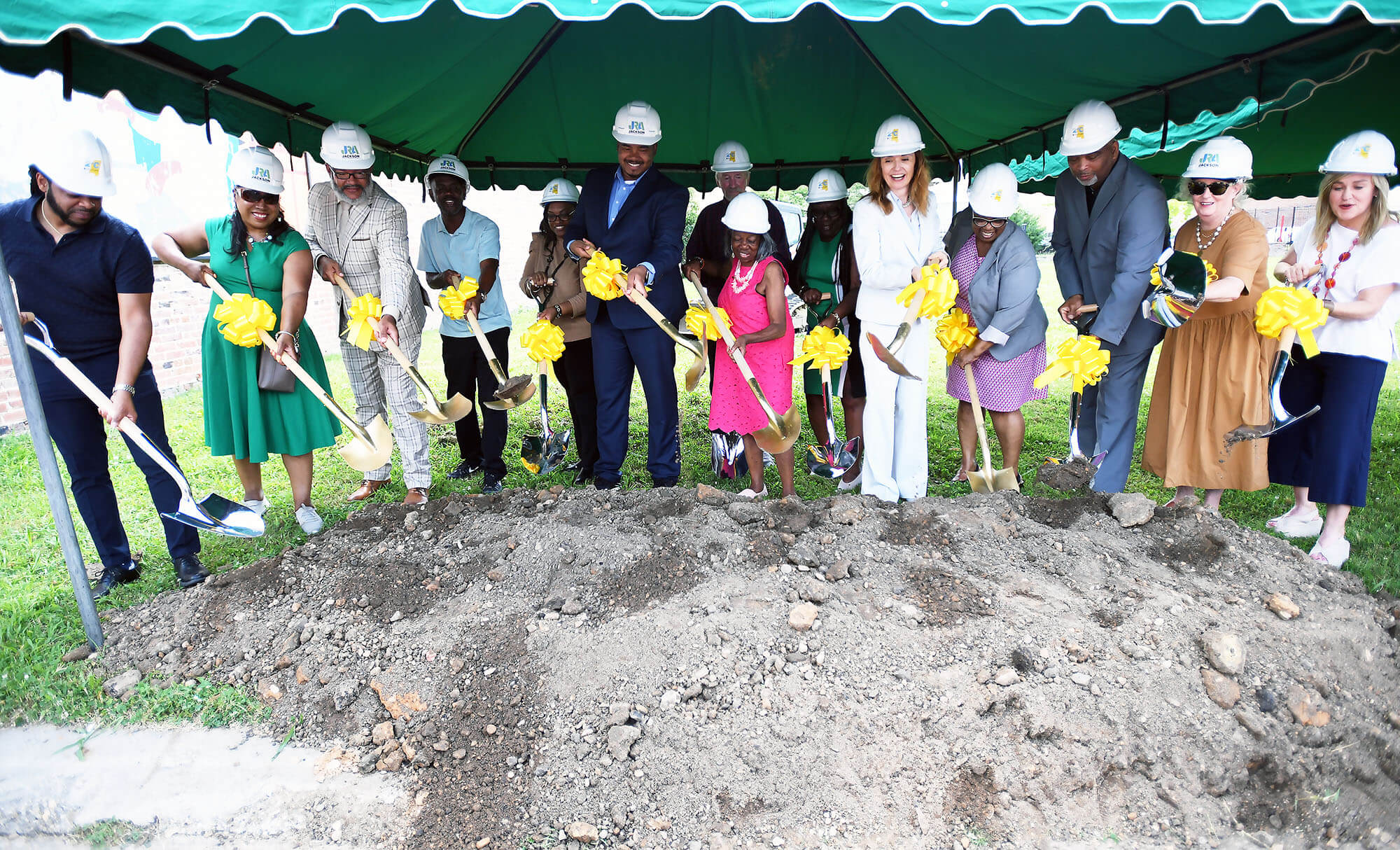

Local officials and community leaders posed to cameras Thursday morning on Farish Street as they dug their ceremonial shovels into the symbolic dirt pile in front of them. The symbolism, they hope, is the continued momentum around rebuilding the historic but largely abandoned downtown Jackson neighborhood.
Nonprofits 2C Mississippi, Farish Street Community of Shalom, and the city’s urban renewal group, Jackson Redevelopment Authority, held the groundbreaking for a new green space between Amite Street and James Meredith Drive. Organizers see the project as both a communal gathering place as well as a shelter and heat sponge.
“This is a historic moment on Farish Street,” said Dorothy Davis, executive director of the Farish Street Community of Shalom.

The groups first announced the green space project last year, building off a 2020 study they did identifying Jackson’s “heat islands,” or urban areas that are much hotter because they lack tree coverage and bodies of water. The study found that parts of downtown Jackson got up to 10 degrees hotter than outer parts of the city during the summer.
Davis said the project’s next phase will be tearing down brick walls and planting new grass and trees, which she said they’ll start in the next couple of weeks. Volunteers will continue to monitor temperatures over the next five years. Davis added they’ll hope to have a new stage built by early next year and then begin work on an amphitheater.
The groups are funding the project with a $1.5 million grant through the U.S. Department of Agriculture Forest Service.
The ceremony followed another groundbreaking in April for the Leonard Court project, which will rebuild 67 old homes into new affordable housing in the Farish Street Historical District. That project is set to finish by summer 2026.
Christopher Pike, executive director of JRA, which owns and will continue to manage the space, said they’ll use the park to host events such as the neighborhood’s annual Juneteenth celebration.
“It’ll just be a park for people to come and hang out,” Pike said. “We’ve been talking to people about maybe doing yoga, that type of stuff. So it’ll be an activated space.
“Obviously there’s an environmental component, which is (tackling the) heat island, but there’s also the quality of life component because most communities you see that are really vibrant have these very activated green spaces.”

Pike teased other new projects in the works along Farish Street: in “eight to 12 months” Pike hopes to have another groundbreaking for the Soul City Market, which includes plans for a food hall, stand-alone restaurants, a Farish Street history museum, and loft apartments on the buildings’ second floors. Pike said the projects would together cost around $30 million, which JRA hopes to fund through both tax credits and rebates as well as private sources.
- Mississippi Marketplace: data center ups and downs, alcohol shortages and new manufacturing projects - February 19, 2026
- More Mississippi students are graduating despite pandemic-era disruptions, new data shows - February 19, 2026
- Education advocates says Mississippi needs honest, nuanced school choice discussion - February 19, 2026